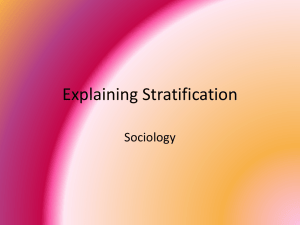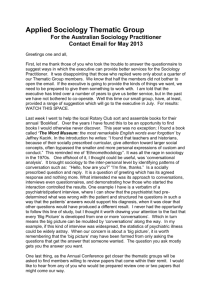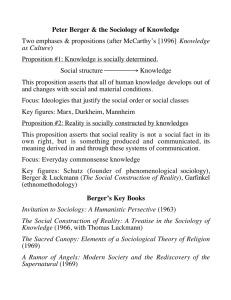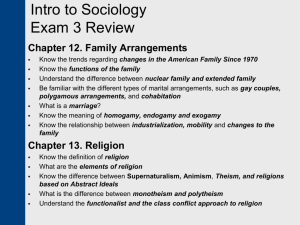Overview of Sociology of Knowledge and Related Concepts Knowledge as
advertisement
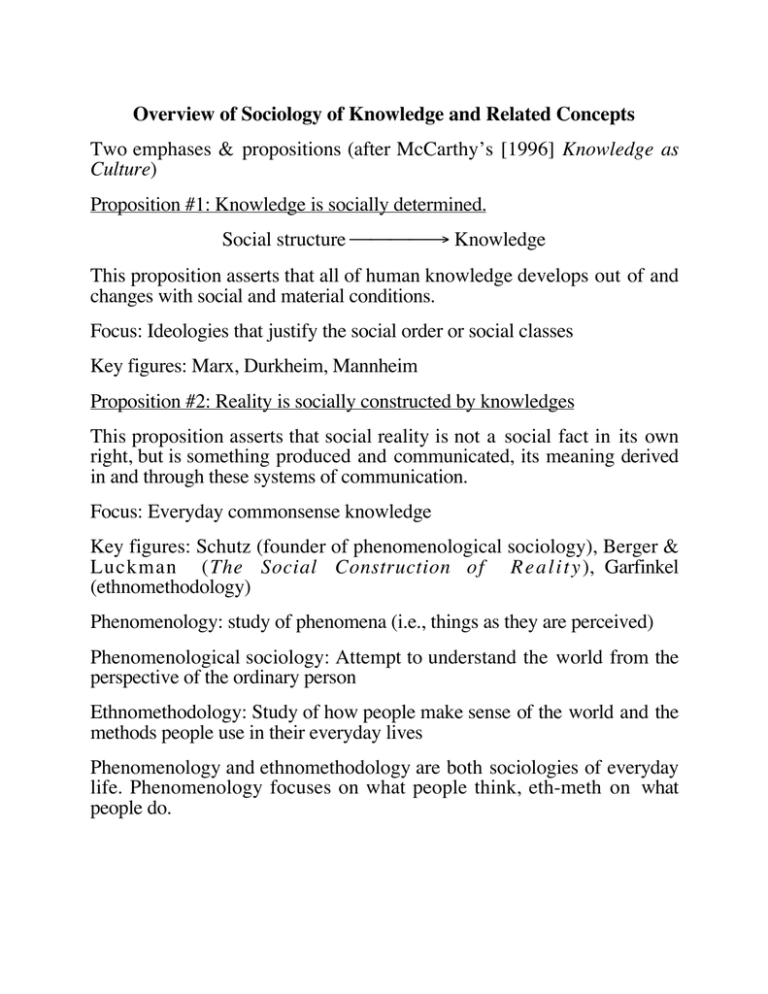
Overview of Sociology of Knowledge and Related Concepts Two emphases & propositions (after McCarthy’s [1996] Knowledge as Culture) Proposition #1: Knowledge is socially determined. Social structure → Knowledge This proposition asserts that all of human knowledge develops out of and changes with social and material conditions. Focus: Ideologies that justify the social order or social classes Key figures: Marx, Durkheim, Mannheim Proposition #2: Reality is socially constructed by knowledges This proposition asserts that social reality is not a social fact in its own right, but is something produced and communicated, its meaning derived in and through these systems of communication. Focus: Everyday commonsense knowledge Key figures: Schutz (founder of phenomenological sociology), Berger & Luckman (The Social Construction of R e a l i t y ), Garfinkel (ethnomethodology) Phenomenology: study of phenomena (i.e., things as they are perceived) Phenomenological sociology: Attempt to understand the world from the perspective of the ordinary person Ethnomethodology: Study of how people make sense of the world and the methods people use in their everyday lives Phenomenology and ethnomethodology are both sociologies of everyday life. Phenomenology focuses on what people think, eth-meth on what people do. Marx’s Sociology of Knowledge Proposition #1: Knowledge is socially determined. Social structure → Knowledge Marx’s terminology Substructure → Superstructure Substructure: economic relations, the means of production Superstructure: cultural and intellectual life, including political, legal, religious and artistic ideas and ideologies “The ideas of the ruling class are in every epoch the ruling ideas, i.e., the class which is the ruling material force of society, is at the same time its ruling intellectual force” (p. 53). Marx believed in true and false knowledge Ideologies are a class’s false conception of itself, i.e., “false consciousness.” E.g., the ideology of the bourgeoisie justifies the capitalist status quo. Marx’s materialist analysis (of the substructure) is true knowledge (“true consciousness” or “class consciousness”) and accurately describes the workings of society. Mannheim’s Sociology of Knowledge Proposition #1: Knowledge is socially determined. Social structure → Knowledge Two types of knowledge: 1. Ideology: idea system that supports the status quo by interpreting it from the point of view of the past 2. Utopia: idea system that favors change by focusing on the future Both sets are determined by historical interests; they have equivalent standing. E.g., the emancipatory ideas Marx advanced benefit the proletariat just as bourgeois ideas benefit the ruling class Sociology can’t make a judgement about the truth of these ideas. Intellectuals, because they are “unattached,” can be critical of all perspectives.

